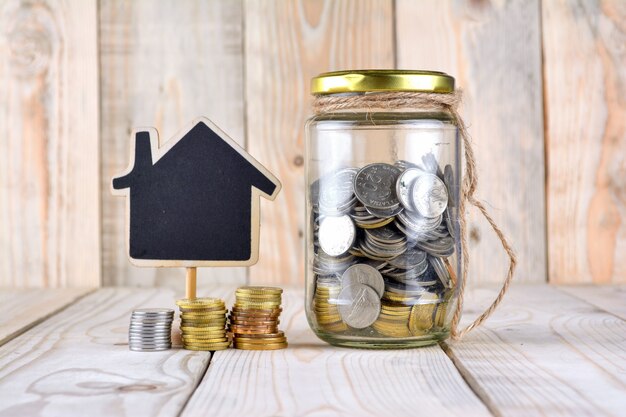Your Guide to Affordable Housing Mn
What You Get:
Free Guide
Free, helpful information about Affordable Housing FAQ and related Affordable Housing Mn topics.
Helpful Information
Get clear and easy-to-understand details about Affordable Housing Mn topics and resources.
Personalized Offers
Answer a few optional questions to receive offers or information related to Affordable Housing FAQ. The survey is optional and not required to access your free guide.
Exploring Affordable Housing Solutions in Minnesota
Finding affordable housing in Minnesota can feel like an uphill battle, yet there are numerous programs and opportunities that can help make homeownership or renting more accessible. This article offers insights into the available options for affordable housing and connects you with essential financial resources that could ease the burden of housing costs.
Understanding Affordable Housing
Affordable housing is characterized by living arrangements that do not strain an individual's or family's budget—typically not exceeding 30% of their income. In Minnesota, rental prices and home purchase costs vary widely across urban and rural areas, impacting affordability.
Key Affordable Housing Options in Minnesota
- Subsidized Housing Programs: Managed by local housing authorities, these programs provide lower rent based on income.
- Section 8 Housing Choice Vouchers: A popular federal program that assists low-income families in affording housing in the private market.
- Low-Income Housing Tax Credit (LIHTC): These developments offer apartments with set rent limits, aiding low- to moderate-income individuals.
- Nonprofit Organizations: Groups like Habitat for Humanity assist eligible families in acquiring homes through sweat equity and an affordable mortgage.
Government Aid and Financial Assistance
Navigating the landscape of financial aid for housing can provide crucial support for those struggling to afford a home in Minnesota.
Programs to Consider
- Minnesota Housing Finance Agency (MHFA): Offers mortgage and down payment assistance for first-time homebuyers.
- Emergency Rental Assistance Programs: These have been vital during the pandemic and continue to aid those at risk of eviction.
- Weatherization Assistance Program: Helps reduce energy expenses for low-income households, indirectly lowering housing-related costs.
Debt Relief and Credit Solutions
Balancing debts and maintaining good credit is vital when seeking affordable housing. Here are some strategies to consider:
- Credit Counseling Services: Work with counselors who can help you manage debt and improve your credit score.
- Debt Consolidation: Simplify your monthly payments by combining them into a single loan with a lower interest rate.
- Credit Repair Companies: Professional help to dispute and rectify inaccuracies on your credit report, potentially improving your housing application prospects.
Educational Grants and Opportunities
For those burdened by the cost of housing while pursuing education, several grants and opportunities can offer relief:
- Pell Grants: These federal grants can help cover educational expenses, freeing up more of your budget for housing costs.
- State-Funded Scholarships: Minnesota offers various scholarships that alleviate education costs for residents, indirectly impacting housing budget flexibility.
Visual Guide to Resources
- 🏠 Subsidized Housing Programs: Income-based rent options.
- 🗝️ Section 8 Vouchers: Assistance for private market rentals.
- 📉 Low-Income Housing Tax Credit: Affordable apartment developments.
- 👷 Habitat for Humanity: Opportunities for homeownership with support.
- 💵 MHFA: Mortgage assistance for first-time buyers.
- 🏡 Emergency Rental Assistance: Help for families facing eviction.
- 🔧 Weatherization Program: Reduces household energy costs.
- 💳 Credit Counseling: Professional guidance to improve credit.
- 📚 Pell Grants & State Scholarships: Financial aid for education.
Navigating affordable housing in Minnesota involves understanding and leveraging the numerous resources available. From government aid and financial counseling to educational opportunities, these tools can be key elements in securing housing that fits your financial situation. By tapping into these resources, you can take significant steps toward achieving an affordable and stable living environment in Minnesota.
What You Get:
Free Affordable Housing FAQ Guide
Free, helpful information about Affordable Housing Mn and related resources.

Helpful Information
Get clear, easy-to-understand details about Affordable Housing Mn topics.

Optional Personalized Offers
Answer a few optional questions to see offers or information related to Affordable Housing FAQ. Participation is not required to get your free guide.


Discover More
- 1 Bedroom Apartments For Rent In Chicago For $700
- 1 Bedroom Apartments That Accept Section 8
- 2 Bedroom Apartments For Rent In Chicago For $700
- 2 Bedroom Apartments For Rent In Philadelphia $600
- 2 Bedroom Apartments San Diego
- 330 Newtown Apartments
- 6 Bedroom House For Rent
- 600 Lofts Apartments
- Abilene Housing
- Abilene Housing Authority
